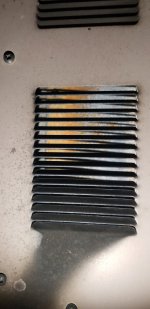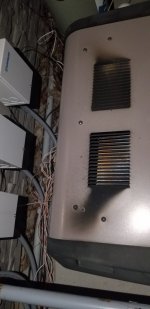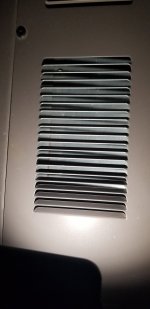Hi Everyone,
Looking for a second opinion on an issue we are having with our spa heater.
We built our house a couple of years ago and have a large pool and large spa. The spa is around 2500 gallons and is used year round in a cold weather environment in northern Ohio (my wife is nuts).
This winter, the heater stopped igniting and I have not been able to get it back up and running. I had our pool installer come out today and they said I needed to replace the heat exchanger for $1600+ and that there is no warranty.
Their reason for the replacement is that there is a lot of soot on the exchanger and because of that, they are also questioning the gas supply line. The pool gas line is a dedicated 2" line that only feeds the two separate pool and spa heaters - as the pool installer had recommended. We did have a major gas leak in this line that was finally discovered about 15 months ago that was likely present since the initial installation of the pool, so it's very possible that there was inadequate gas supply during this time although we didn't notice it with our ability to heat the spa or pool. This has since been repaired.
My questions:
1. Is it possible that a heat exchanger would need replacement so quickly?
2. Is there any other reason that soot would accumulate?
3. When I look around the vents on the top of the heater, there is a noticeable amount of soot around them and when I look through the vent, I do see some corrosion on a silver plate just inside. This same areas on the pool heater looks pristine and new. Any thoughts?
4. Anything else I should be considering?
Thanks for all of your help.
Bobby
Looking for a second opinion on an issue we are having with our spa heater.
We built our house a couple of years ago and have a large pool and large spa. The spa is around 2500 gallons and is used year round in a cold weather environment in northern Ohio (my wife is nuts).
This winter, the heater stopped igniting and I have not been able to get it back up and running. I had our pool installer come out today and they said I needed to replace the heat exchanger for $1600+ and that there is no warranty.
Their reason for the replacement is that there is a lot of soot on the exchanger and because of that, they are also questioning the gas supply line. The pool gas line is a dedicated 2" line that only feeds the two separate pool and spa heaters - as the pool installer had recommended. We did have a major gas leak in this line that was finally discovered about 15 months ago that was likely present since the initial installation of the pool, so it's very possible that there was inadequate gas supply during this time although we didn't notice it with our ability to heat the spa or pool. This has since been repaired.
My questions:
1. Is it possible that a heat exchanger would need replacement so quickly?
2. Is there any other reason that soot would accumulate?
3. When I look around the vents on the top of the heater, there is a noticeable amount of soot around them and when I look through the vent, I do see some corrosion on a silver plate just inside. This same areas on the pool heater looks pristine and new. Any thoughts?
4. Anything else I should be considering?
Thanks for all of your help.
Bobby







